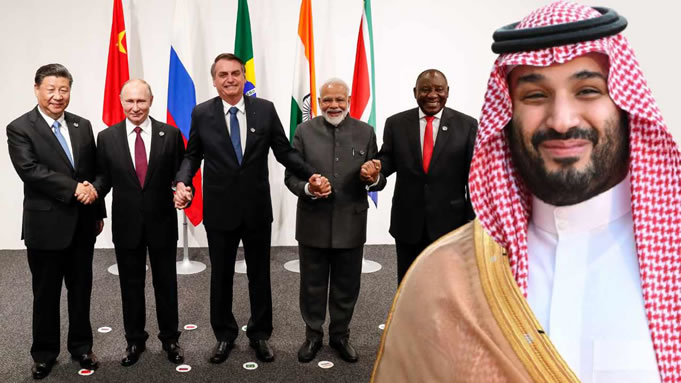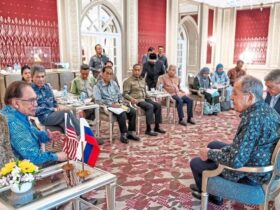The BRICS economic alliance between group of nations comprising Brazil, Russia, India, China and South Africa, has been gaining more attention and influence in the global arena, especially as an alternative to the Western-dominated G7 bloc.
The BRICS countries have a combined population of more than 3.2 billion people, making up about 40% of the world’s roughly 8 billion people.
They also have a combined nominal GDP of US$28.06 trillion (about 26.6% of the gross world product), a total GDP (PPP) of around US$56.65 trillion (32.5% of global GDP PPP), and an estimated US$4.46 trillion in combined foreign reserves (as of 2018).
The BRICS countries have been holding annual summits since 2009, with the most recent one hosted by China on 24 July 2022. The group has also launched several initiatives to enhance cooperation and development among its members and other developing countries, such as:
– The New Development Bank, which provides financing for infrastructure and sustainable development projects in the BRICS and other emerging economies.
– The Contingent Reserve Arrangement, which provides mutual support in times of balance of payments difficulties or short-term liquidity pressures.
– The BRICS payment system, which aims to facilitate trade and investment among the BRICS countries by reducing transaction costs and risks.
– The BRICS Joint Statistical Publication, which provides comparable data and indicators on the economic and social performance of the BRICS countries.
– The BRICS basket reserve currency, which is a proposal to create a common currency for the BRICS countries based on a weighted average of their national currencies.
The BRICS countries have also been vocal about their vision for a more multipolar and balanced world order that reflects the diversity and needs of developing countries. At a meeting of foreign ministers in South Africa on 2 June 2023, they called for a rebalancing of the global order away from Western nations. South African Foreign Minister Naledi Pandor said the group’s vision was to provide global leadership in a world fractured by geopolitical tension, inequality and global insecurity.
The group however is not without its challenges and controversies. Some of the issues that have clouded its cohesion and credibility include:
– Allegations of Russian war crimes in Ukraine, which have led to an arrest warrant for Russian President Vladimir Putin by the International Criminal Court (ICC) and protests against Russian Foreign Minister Sergei Lavrov’s presence at the South African meeting.
– The tensions between India and China over their disputed border regions, which have resulted in several clashes and casualties in recent years.
– The political and economic instability in Brazil, which has been plagued by corruption scandals, social unrest and recession.
– The human rights violations and environmental degradation in China, which have drawn criticism from international organizations and civil society groups.
– The slow growth and high unemployment in South Africa, which have undermined its role as a regional leader and a voice for Africa.
Despite these challenges, the BRICS countries have expressed their commitment to continue working together for mutual benefit and common development. They have also indicated their interest in expanding the group to include other countries that share their vision and values. According to Russian Foreign Minister Sergei Lavrov, “more than a dozen” countries including Saudi Arabia have expressed interest in joining the group.
Some of the countries that have expressed an interest, formal or informal, in joining the BRICS include:
Algeria, Argentina, Bangladesh, Egypt, Indonesia, Iran, Kazakhstan, Nicaragua, Nigeria, Saudi Arabia, Senegal, Thailand, Turkey and United Arab Emirates.
There is no formal application process as such to join BRICS, but any hopeful government must receive unanimous backing from all existing BRICS members. The BRICS group has not yet announced any decision on accepting new members, but it is expected to discuss the matter at its upcoming summit in Johannesburg in August 2023.









Got a Question?
Find us on Socials or Contact us and we’ll get back to you as soon as possible.